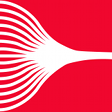
America's Promise Alliance is an American alliance of nonprofit, community organizations, businesses, and government organizations dedicated to improving the lives of young people.
TechSoup, founded in 1987 as CompuMentor and later known as TechSoup Global, is a nonprofit international network of non-governmental organizations (NGOs) that provides technical support and technological tools to other nonprofits.
The global digital divide describes global disparities, primarily between developed and developing countries, in regards to access to computing and information resources such as the Internet and the opportunities derived from such access.

Discovery Digital Networks was a San Francisco based multi-channel Internet television and digital cable network that created, produced and distributed streaming television shows on niche topics. It was sold by Discovery Communications into Group Nine Media in December 2016 and, as such, no longer exists.

A telecentre is a public place where people can access computers, the Internet, and other digital technologies that enable them to gather information, create, learn, and communicate with others while they develop essential digital skills. Telecentres exist in almost every country, although they sometimes go by a different names including public internet access center (PIAP), village knowledge center, infocenter, Telecottage, Electronic Village Hall, community technology center (CTC), community multimedia center (CMC), multipurpose community telecentre (MCT), Common/Citizen Service Centre (CSC) and school-based telecentre. While each telecentre is different, their common focus is on the use of digital technologies to support community, economic, educational, and social development—reducing isolation, bridging the digital divide, promoting health issues, creating economic opportunities, leveraging information communications technology for development (ICT4D), and empowering youth.
Nonprofit technology is the deliberative use of technology by nonprofit organizations to maximize potential in numerous areas, primarily in supporting the organization mission and meeting reporting requirements to funders and regulators.

Andy Carvin is an American blogger and a former senior product manager for online communities at National Public Radio (NPR). Carvin was the founding editor and former coordinator of the Digital Divide Network. He is a field correspondent for the vlog Rocketboom.

826 National is a nonprofit organization dedicated to helping students, ages 6–18, improve their expository and creative writing skills. The organization's eight chapters include 826 Valencia in San Francisco, 826NYC in Brooklyn, 826LA in Los Angeles, 826CHI in Chicago, 826Michigan, 826 Boston in Boston, 826DC in Washington, DC, 826 New Orleans, and 826MSP.
Antonia "Toni" Stone was an educator and pioneering activist against the growing digital divide who created the United States' first community technology center. After 20 years as a mathematics teacher in New York City private schools, Stone changed her focus to technology education for poor communities and formerly incarcerated adults.
The Center to Bridge the Digital Divide (CBDD) was a self-sustaining outreach unit of the Washington State University Extension. Founded in 2001, the CBDD was an ICT4D organization committed to assisting under-served populations leverage information communication technologies (ICT) to better their lives and achieve desired goals. Unlike traditional digital divide initiatives, the CBDD's strategic focus was not on gaining access to technology but on helping target communities achieve successful application of ICT.

The Benton Institute for Broadband & Society, until 2019 known as the Benton Foundation, is a nonprofit organization set up by former U.S. Senator William Benton and his wife, Helen Hemingway Benton. Their son, Charles Benton, served as chairman and CEO until his death in 2015.

Ungana-Afrika, Swahili for "connect africa", is a non-governmental organisation based in Pretoria, South Africa that provides a wide range of ICT services for civil society within and outside of the continent. It aims to better empower civil society organisations, networks and related stakeholders, in terms of ICT capacity and resources, so they can efficiently achieve their unique social missions.
Aptivate is a NGO and not-for-profit organisation based in the United Kingdom. Aptivate combines best practices from the commercial software sector and the International Development sector to create ICT services that facilitate communication for unconnected communities, empowering ordinary people across the developing world to improve their lives.

BAVC Media, previously known as the Bay Area Video Coalition (BAVC), is a nonprofit organization that works to connect independent producers and underrepresented communities to emerging media technologies. It was founded in 1976 in San Francisco.
TakingITGlobal, which is also known as TIG, is a charitable non-governmental organization focusing on global issues by promoting awareness and engagement among global youth. It was founded in 1999 in Toronto, Ontario, Canada, by Jennifer Corriero and Michael Furdyk, who are the Executive Director and Director of Technology respectively. TIG uses an online social network aimed primarily at youth to raise awareness and discussion on a number of global issues and encourages youth to take action that affects their local and global communities.
Knowbility is an American non-governmental organization based in Austin, Texas, working to support the independence and empowerment of people with disabilities by promoting the use and improving the availability of accessible information technology. Its mission is to create an inclusive digital world for people of all abilities. Knowbility's signature program is the Accessibility Internet Rally, a web-building competition that brings together volunteer web designers to create accessible websites for nonprofit organizations and artists that serve communities all over the world.
Public Counsel is the largest provider of pro bono legal services in the United States. Initially called the Beverly Hills Bar Association Law Foundation, it was the first bar-sponsored public interest law firm in the United States.

Stellar, or Stellar Lumens, is an open-source, decentralized protocol for digital currency to fiat money low-cost transfers which allows cross-border transactions between any pair of currencies. The Stellar protocol is supported by a Delaware nonprofit corporation, the Stellar Development Foundation, though this organization does not enjoy 501(c)(3) tax-exempt status with the IRS.
Jonah Wittkamper is a biologist, technologist, startup founder and social entrepreneur. He is the Co-Founder and President of the NEXUS, a movement to help wealthy families engage in charity and impact investing. In 2020, he founded the Amazon Investor Coalition to advance forest friendly economic development and the rule of law. In addition, in 2017, he created the Healthy Democracy Coalition, a network of philanthropists dedicated to bridging political divides.
The Education Development Center (EDC) is a global nonprofit organization to improve education, promote health, and expand economic opportunity across the United States and in more than 80 other countries. EDC headquarters are in Waltham, Massachusetts, and main offices in Washington, D.C., New York City, and Chicago. EDC has 1,400 employees worldwide.








